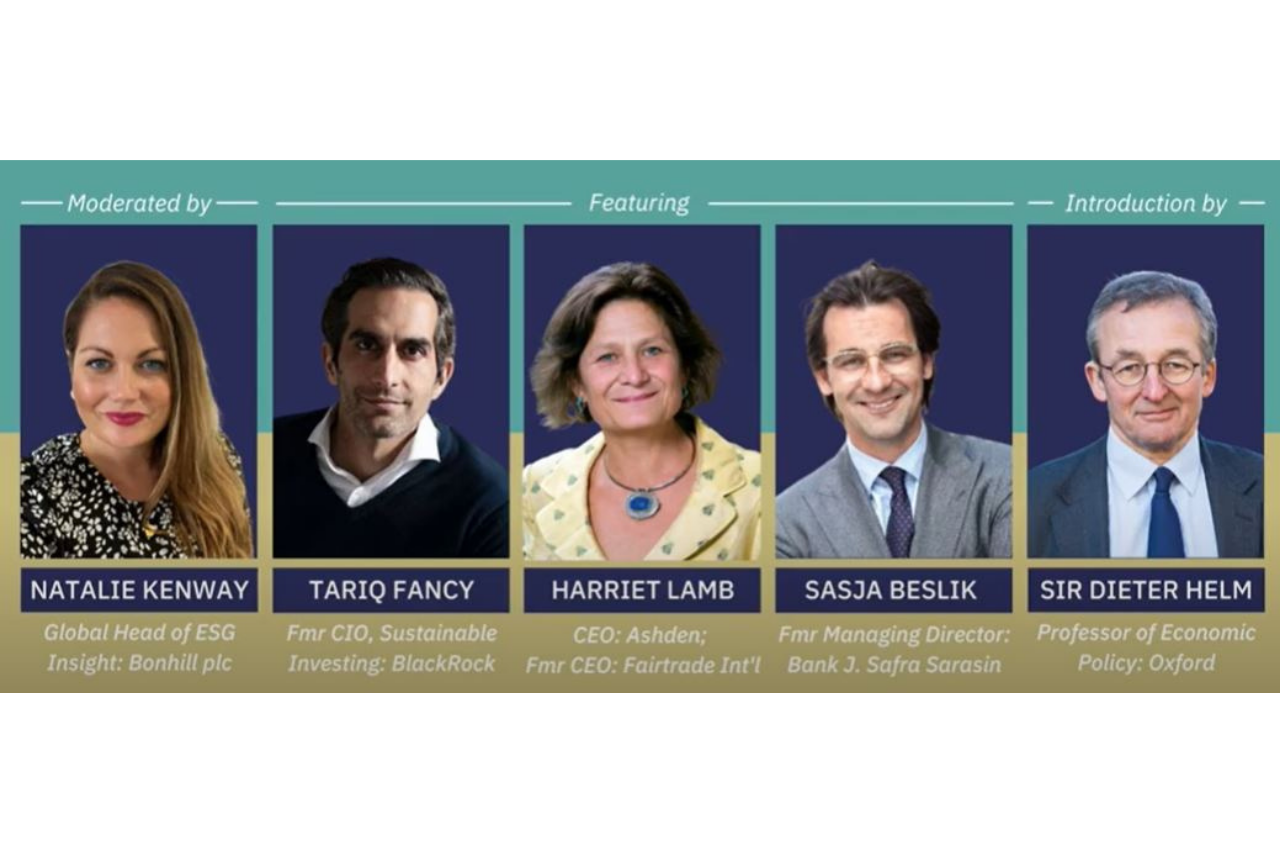ESG is a process for investing, rather than a solution in itself, and can help people align their values without impacting their investments, commentators said this week during a panel discussion.
Chaired by ESG Clarity‘s global head of ESG insight Natalie Kenway, panellists Sasja Beslik (former managing director and head of sustainable finance development at Bank J. Safra Sarasin), Tariq Fancy (former CIO for sustainable investing at BlackRock) and Harriet Lamb (CEO of the climate not-for-profit Ashden), took part in a Global Returns Project discussion, following an introduction by Oxford University economics professor Dieter Helm, titled ‘Is ESG Greenwash?’
Former BlackRock CIO Fancy, who has gained headlines for describing the ESG investing industry as “dangerous“, told attendees the majority of ESG products are public market products so if you buy into that fund the capital doesn’t go towards that company, they’ve already sold the shares, “so for the most part it’s just value alignment”.
He added: “It’s like Shariah-compliant investors not buying shares in Diageo, for example. They consider it ethical investing, but not one of them thinks that by doing so they are going to stop people in France drinking wine, they just know they’re actively deciding not to partake in it.”
Beslik added this is because ESG is a process (of exclusions, positive screening etc.) rather than a solution.
“What industry is selling is a certain type of process, that enhances investment decisions, and it’s very difficult for people outside the industry to understand what it actually means in practice – are we creating any tangible improvements on the ground or not?” he said.
“And the current state of the world is that we are not actually making any tangible improvements with huge amounts of commitments we are making on behalf of these investments.”
Where ESG can help
ESG could instead be used for the “real issues” of wealth distribution and the big polluters, he added.
“How many ESG funds in the world are addressing 300 billionaires that own half of the capital on this planet?” he asked.
“These are the things ESG could be used for, to try to get the debate ongoing, and try to see how we can change these things within the capitalistic system.”
To achieve this, Fancy added mandatory compliance is required, as well as government policy and regulation.
Another area where real change could be seen is in funding smaller impact projects, former Fairtrade International CEO Lamb said.
“Where have all the trillions [into ESG] gone?” she said. “There are people right on the frontline of climate innovation, they might be community based, they might be small startups, looking for money, and are unable to find the money they need, either to scale up or to replicate what they’re doing.”
See also: – UNCDF: Funding the missing middle
Beslik concluded the future of ESG is “going to be more regional, it’s going to be more focused, it’s going to be more narrow in a sense what it can accomplish and what it can create through the means of investments”.








